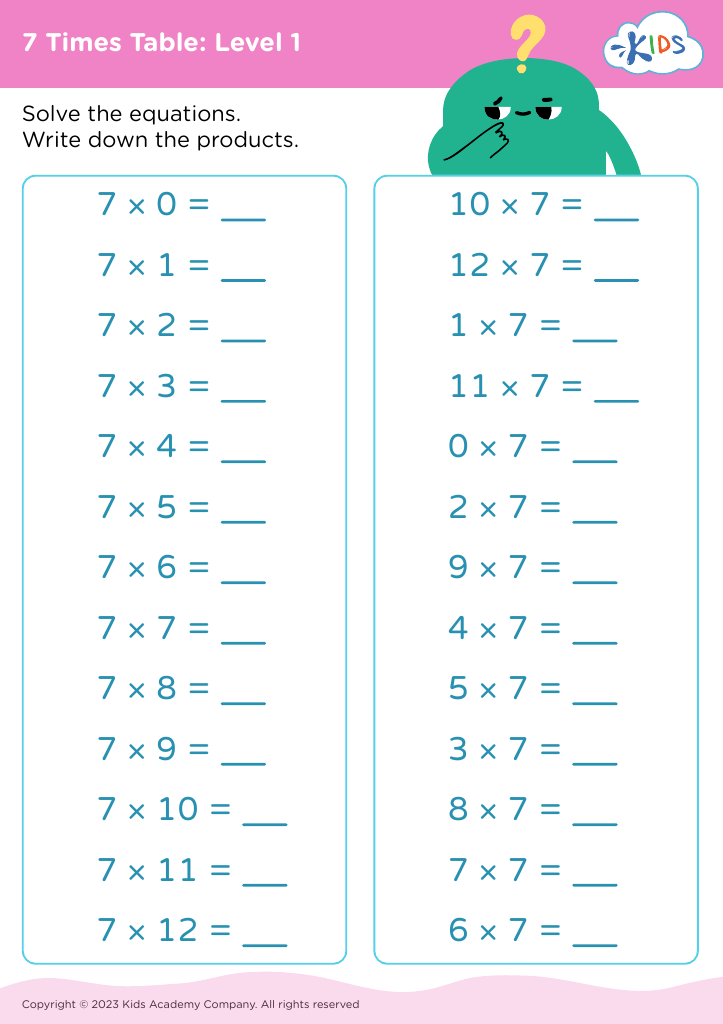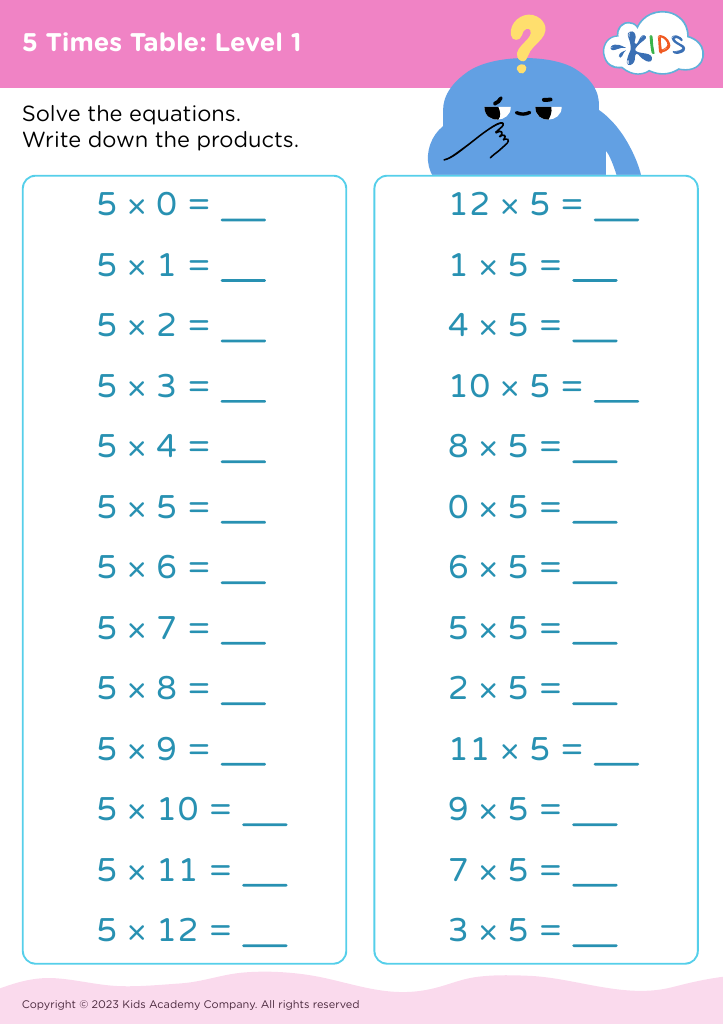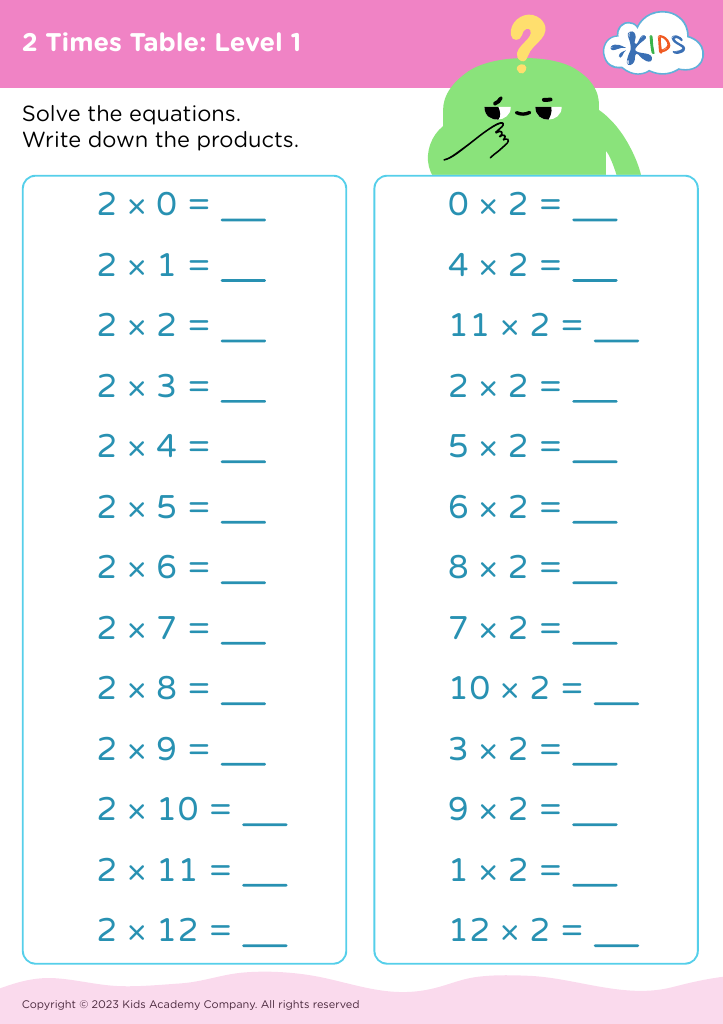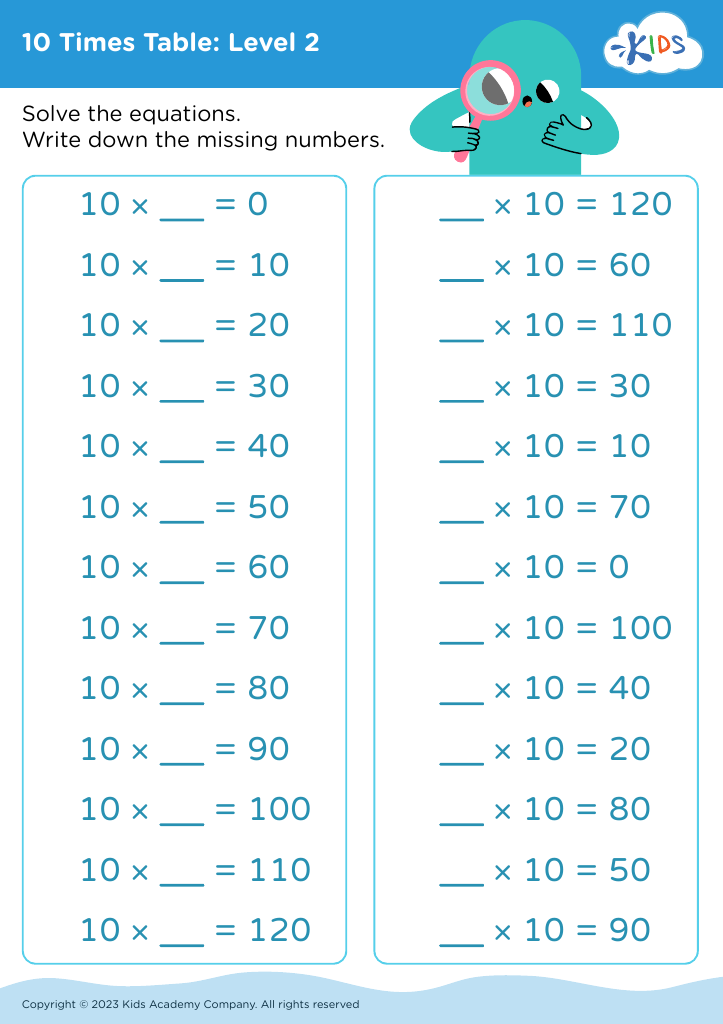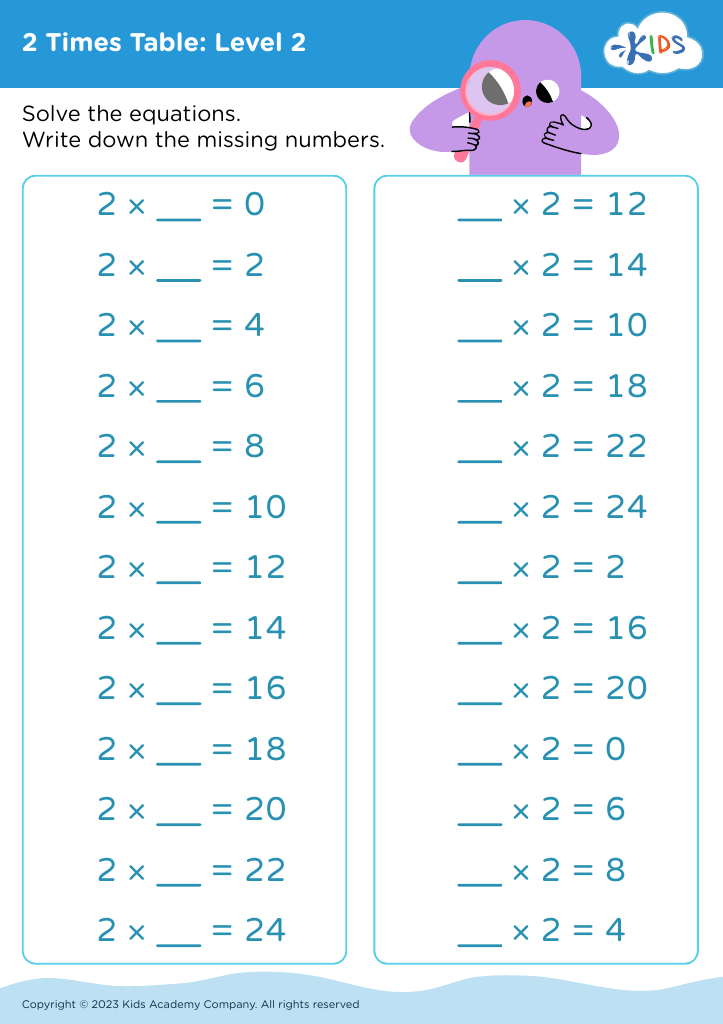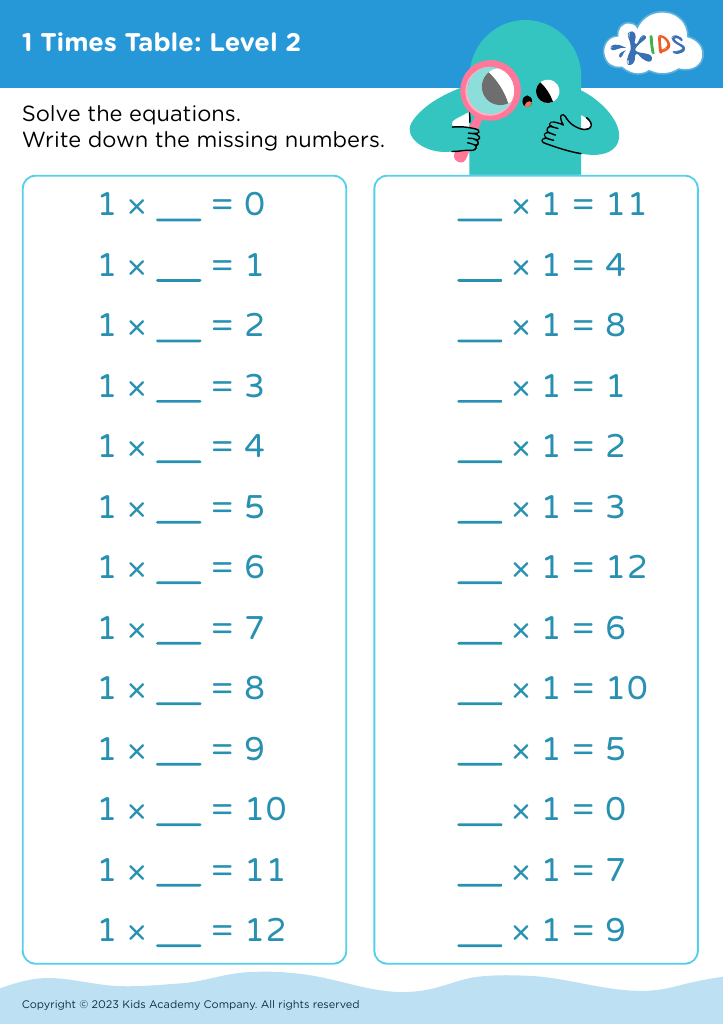Understanding times tables Worksheets for Ages 7-9
6 filtered results
-
From - To
Explore our "Understanding Times Tables Worksheets for Ages 7-9" designed to make learning multiplication fun and engaging! These worksheets offer a variety of exercises and interactive activities to help young learners grasp the concept of times tables through hands-on practice. Children can enjoy colorful graphics, engaging problems, and clear instructions that promote independent learning. Perfect for reinforcing classroom lessons or supporting homeschooling, these resources help build confidence and proficiency in multiplication. Watch as your child masters their times tables and develops essential math skills that will benefit them for years to come! Start their multiplication journey today!
Understanding times tables is crucial for children aged 7-9 as it lays a fundamental foundation for their mathematical skills. At this age, students transition from basic arithmetic to more complex operations, and times tables are essential for developing fluency in multiplication—a key component of math that appears across various topics, including division, fractions, and problem-solving.
When children master their times tables, they gain confidence in their abilities, making them more willing to tackle challenging math problems. This confidence can foster a positive attitude towards math, making it a subject they enjoy and excel in. Additionally, strong multiplication skills improve overall academic performance; mathematics is intertwined with various subjects, including science and even reading comprehension, as word problems require mathematical understanding.
For teachers and parents, emphasizing times tables is also integral in setting the stage for math-related careers. Proficiency in multiplication helps students grasp advanced concepts they will encounter in higher grades, ensuring they’re prepared for future academic challenges. Lastly, mastering times tables can promote critical thinking skills as children learn to approach problems strategically, offering life-long benefits both academically and in everyday situations. Taking an active role in this learning process, therefore, holds significant value for educators and parents alike.
